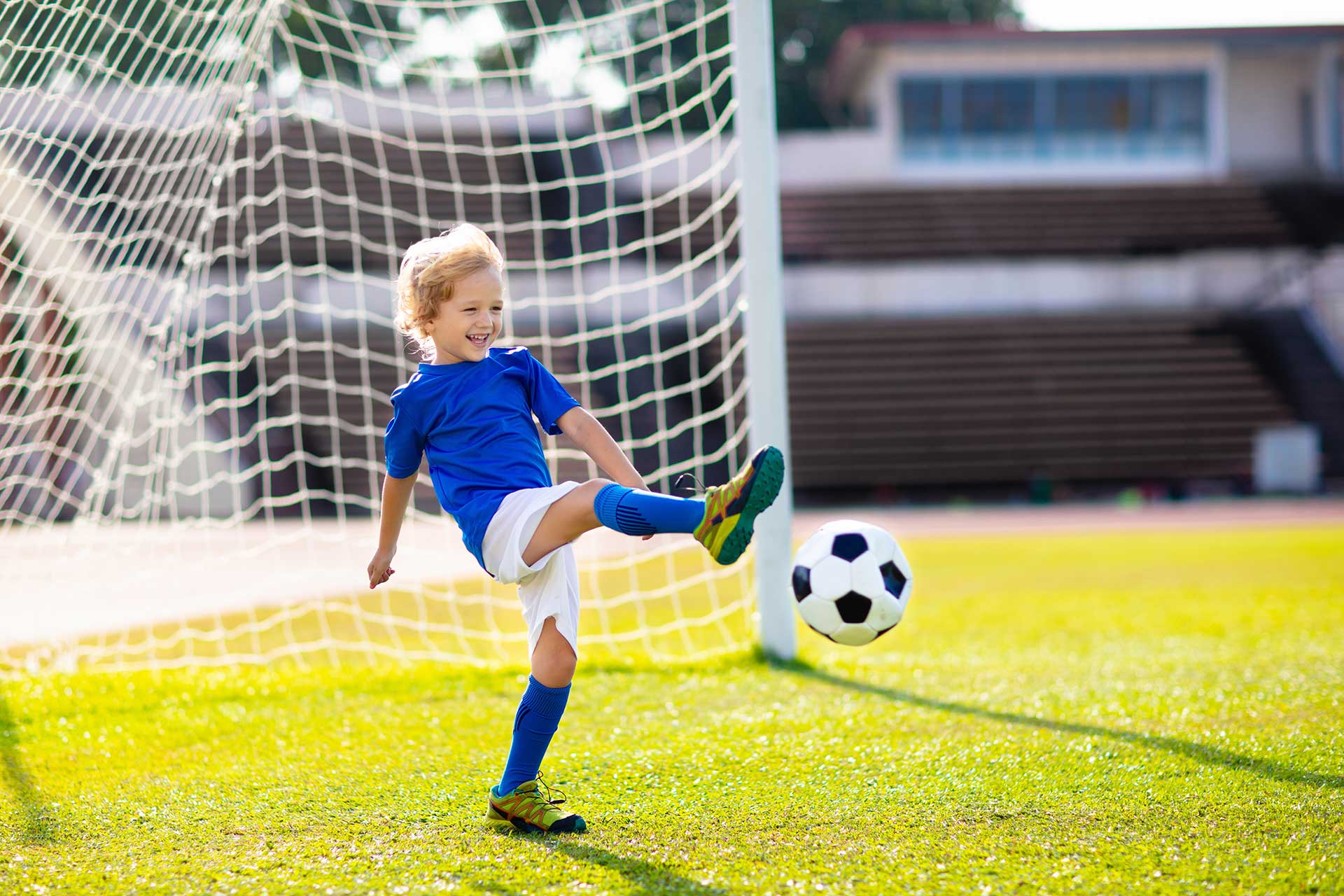The Effect of Sports on Physical and Mental Development in Children
- 17 September 2024
Childhood is a crucial period for growth and development, with young minds and bodies constantly evolving. Engaging in sports activities serves as a powerful catalyst in this journey, impacting children’s development in numerous beneficial ways. Beyond competition, sports contribute significantly to physical health, cognitive abilities, and emotional well-being. This blog explores the multifaceted effects of sports on children’s physical and mental development, illustrating why encouraging active participation is essential for their overall growth.
Physical Development
The role of physical activity in a child's life cannot be overstated. Engaging in youth sports helps children develop strong muscles, enhance motor skills, and improve coordination. Activities like running, swimming, and playing team sports bolster cardiovascular health, strengthen bones and muscles, and enhance flexibility. Regular sports participation combats obesity and fosters lifelong healthy habits, setting the foundation for a robust and active lifestyle.
According to studies, children who engage in sports have lower risks of future illnesses, such as heart disease and diabetes. They also develop better hand-eye coordination and muscle strength, contributing to improved overall physical health. The habits formed through early participation in sports—such as regular exercise and a balanced diet—often persist into adulthood, promoting long-term wellness.
Cognitive Growth
Sports significantly enhance cognitive development in children. Physical activity stimulates the production of endorphins, which boost brain function and cognitive performance. Through sports, children learn to make quick decisions, solve problems, and focus on tasks. Team sports, in particular, foster effective communication and constructive expression of ideas, contributing to improved academic performance and attentiveness in school.
Research indicates that children involved in youth sports tend to excel academically and exhibit positive attitudes toward learning. They often show better concentration and memory retention, which translate into higher test scores and a greater likelihood of academic success.
Social and Emotional Development
Participating in sports offers a wealth of social and emotional benefits. Team sports teach children essential skills such as teamwork, conflict resolution, and cooperation. They learn to trust their teammates, work towards common goals, and navigate both victories and defeats gracefully.
Engagement in sports also builds self-esteem and self-confidence. Children gain a positive body image and emotional resilience, crucial for mental health. Sports activities provide an outlet for stress and anxiety, triggering the release of neurotransmitters that help manage emotional challenges. This helps children handle stress better and fosters a more positive outlook on life.
Healthy Habits and Lifestyle
Sports instill healthy habits that extend beyond physical fitness. Children learn the importance of regular exercise, balanced nutrition, and sufficient rest through their participation in sports. They also develop valuable life skills, such as discipline and time management, as they set goals and work towards achieving them.
The commitment required in sports—whether it’s adhering to practice schedules or striving for personal improvement—translates into other areas of life, including academics and future careers. By fostering these habits early on, sports prepare children for a lifetime of well-being and success.
Psychological Benefits
The psychological benefits of sports are significant and multifaceted. Regular physical activity through sports is linked to lower stress levels, reduced anxiety and depression, and enhanced self-esteem. Children who participate in sports often exhibit greater creativity and cognitive performance. For girls in particular, sports participation is associated with a healthier body image and increased happiness.
Academic Performance
The relationship between sports and academic performance is often underestimated. Evidence suggests that participation in sports can lead to improved academic outcomes. Athletes generally have lower dropout rates, higher GPAs, and better test scores. They are also more likely to attend college and experience greater success in their careers. This correlation underscores the importance of balancing academic and athletic commitments for overall success.
Social Bonds
Sports play a crucial role in developing social skills and fostering relationships. Through teamwork and competition, children learn to communicate effectively, collaborate, and build strong peer relationships. These interactions help them develop a sense of community and belonging, which positively impacts their social development and emotional well-being.
The impact of sports and mental development in children is profound and multifaceted. From enhancing physical fitness and cognitive abilities to building self-esteem and fostering social skills, sports provide invaluable benefits that extend well beyond the playing field. By encouraging and supporting children’s involvement in sports, parents and educators can help them develop into well-rounded, resilient individuals capable of navigating life’s challenges successfully.





